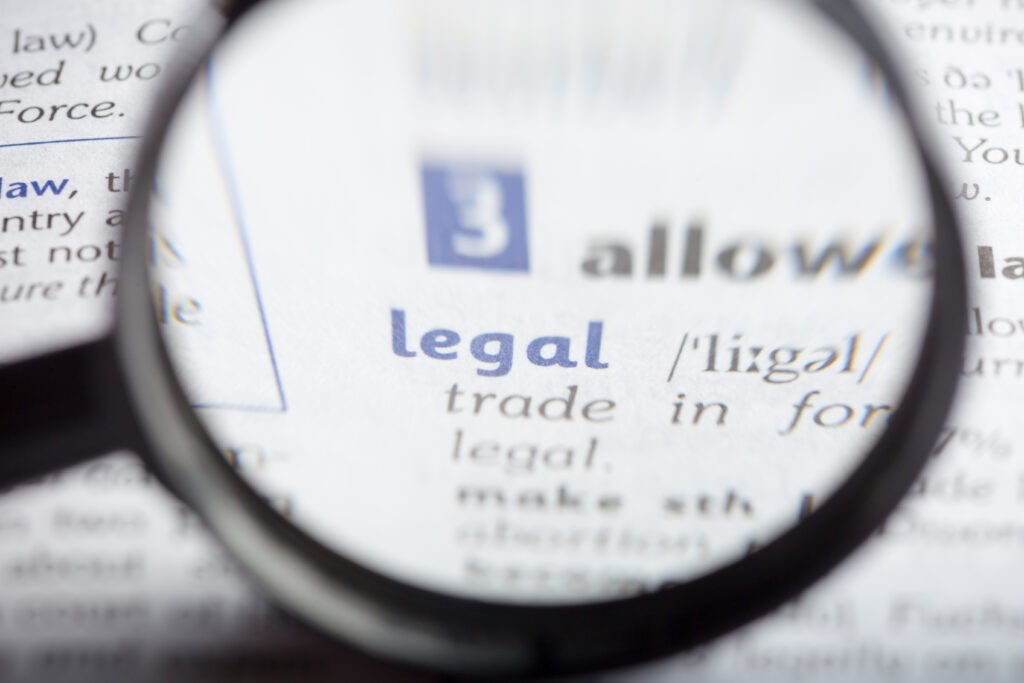If you suffered an accident in Las Vegas, you probably have many personal injury questions. You may wonder whether you have a valid personal injury case, what your case is worth, or how long it may take. These concerns are normal, but every case is unique.
A qualified attorney can help you understand what to expect before filing a personal injury claim. Whether it involves a car accident, slip and fall, or medical malpractice, asking the right questions is essential when meeting with a prospective lawyer.
This article highlights the most common questions about personal injury law and provides clear answers. It also explains how accident lawyers handle injury lawsuits, settlements, and litigation. For deeper guidance, readers can explore the full FAQ page or schedule a free consultation with an experienced personal injury attorney in Las Vegas.
Do I Even Have a Case?
One of the first personal injury questions many people ask is whether they have a valid personal injury case. The answer depends on several factors, including negligence, damages, and the connection between the accident and the injury.
To bring a personal injury claim, the plaintiff must show that another party acted negligently or wrongfully. Negligence occurs when a person or company fails to act with reasonable care, causing harm to others. Common examples include car accidents, slip and fall incidents, and medical malpractice.
The severity of your injuries and the medical expenses involved also affect whether a case is strong. Courts and insurance companies often review past and future medical bills, lost income, and property damage to determine liability and value.
Every case is different, but a qualified attorney can help you understand if your situation meets Nevada’s requirements. Statute of limitations rules also apply, meaning a lawsuit must be filed within specific deadlines.
If you are unsure whether you have a valid claim, consulting an experienced personal injury lawyer may provide clarity. Many attorneys offer a free consultation to explain your options and guide you through the next steps in the litigation process.

How Much Is My Case Worth?
Another common personal injury question involves the value of a personal injury lawsuit. Many people want to know what their case is worth before moving forward. While no lawyer can guarantee an exact number, several factors determine value.
Insurance companies, courts, and attorneys review the severity of your injuries, medical expenses, lost income, and property damage. Pain and suffering, emotional distress, and future medical attention are also considered. Wrongful death cases may include additional damages for surviving family members.
Settlement offers often depend on how strong the evidence is. Expert testimony, medical records, and witness statements help prove negligence and damages. Cases with clear liability often settle outside of court. However, if insurance coverage is disputed, a case may go to litigation or trial.
A settlement offer may come early, but accepting too soon can leave compensation on the table. An experienced personal injury attorney can help you make an informed decision by comparing the offer with the true value of your case.
Because every case is unique, it is best to ask a personal injury lawyer during a consultation for guidance. Trial lawyers can explain whether your case is worth more through litigation or negotiation.
How Long Will My Case Take?
Clients often ask how long a personal injury lawsuit will last. The truth is that every case is different. Some injury lawsuits settle quickly, while others take months or even years to resolve.
The timeline depends on the parties involved, the severity of your injuries, and the court system’s schedule. Cases are often delayed if medical treatment is ongoing, since attorneys need a full picture of medical bills and future care.
The discovery process also plays a major role. This stage allows each side to exchange evidence, depose witnesses, and review expert testimony. Discovery can extend the timeline but ensures both sides have the information needed for trial or settlement.
While many cases settle outside of court, others may go to litigation. If a case goes to trial, the process can last longer because of hearings, filing fees, and court availability. An experienced personal injury attorney can help you understand whether your case is likely to settle early or proceed through the full litigation process.
Although waiting can feel stressful, patience often leads to higher settlement offers. Understanding that personal injury law requires careful preparation helps plaintiffs make informed decisions about their case.
Costs, Fees, and Lawyer Expenses
One of the most important personal injury questions involves how much it costs to hire a personal injury lawyer. Most accident and injury cases are handled on a contingency fee basis. This means the attorney only collects payment if the case results in a settlement or verdict.
A contingency fee is usually a percentage of the final recovery. This arrangement allows injured people to hire a lawyer without paying large amounts upfront. It also motivates the law firm to pursue the maximum possible compensation.
In addition to attorney fees, clients may face out-of-pocket expenses. These include filing fees, costs of medical records, and expert testimony. Many attorneys advance these expenses and deduct them from the final settlement offer.
During a free consultation, it is important to ask a personal injury attorney about fees, costs, and billing practices. Every law firm handles these issues differently, so clear communication ensures no surprises later.
By asking the right questions to a personal injury lawyer, you can make an informed decision about whether hiring a personal injury attorney is the right step for your case.
Who Will Handle My Case?
Many people assume that the attorney they meet during a consultation will personally handle their case from start to finish. In reality, most law firms use a team approach. An experienced personal injury attorney may supervise, but paralegals, legal assistants, and trial lawyers often manage parts of the litigation process.
This approach allows cases to move efficiently through the court system. For example, staff may gather medical records, prepare discovery responses, or track filing fees. However, the qualified attorney remains responsible for strategy, settlement negotiations, and courtroom representation.
When meeting with prospective lawyers, it is smart to ask who will handle your case. Questions to ask include whether a trial lawyer will be involved, how often you will receive updates, and how much direct contact you will have with the attorney.
Knowing who is involved helps you understand the level of experience guiding your personal injury claim. It also provides confidence that your case will be prepared if it must go to trial. A strong law firm ensures that every case receives attention, whether it settles outside of court or requires full litigation.

Understanding Legal Terms
Damages
In personal injury law, damages represent the money awarded to compensate a plaintiff for losses. These may include medical bills, lost income, and out-of-pocket expenses. Damages can also cover pain and suffering or property damage caused by the accident. In wrongful death cases, damages may extend to surviving family members for financial and emotional losses.
Negligence
Negligence is the foundation of most personal injury claims. A negligent party is one who fails to act with reasonable care, causing harm to others. Car crash cases, slip and fall incidents, and medical malpractice lawsuits often rely on proving negligence. To succeed, the plaintiff must show duty, breach, causation, and damages.
Releases
A release is a legal document signed when accepting a settlement offer. It prevents the plaintiff from bringing further claims against the at-fault party or their insurance companies. Once signed, the lawsuit cannot be reopened, even if new injuries are discovered. Because of this, an attorney can help review a release before it is finalized.
Understanding these terms helps you make informed decisions about whether to accept a settlement or go to litigation. A qualified attorney ensures your rights remain protected throughout the discovery process and beyond.
Medical Bills & Compensation
One of the biggest concerns in a personal injury case involves medical bills. Many injured people wonder who pays medical expenses while a lawsuit is pending. In most cases, health insurance, medical liens, or personal injury protection coverage may cover costs until the settlement offer is reached.
Compensation in a personal injury lawsuit often includes both past and future medical expenses. Courts and insurance companies also consider lost income, property damage, and out-of-pocket expenses. In severe cases, damages may extend to pain and suffering or wrongful death.
If the case goes to trial, expert testimony often explains the severity of your injuries and the cost of ongoing treatment. This information helps trial lawyers prove the value of the claim.
Because every case is unique, the type and amount of compensation depend on many factors. The plaintiff’s medical attention, the extent of negligence, and the available insurance coverage all affect the final recovery.
A settlement outside of court may resolve these issues faster, but it is important not to accept less than the case is worth. An experienced personal injury attorney can help you understand the compensation you deserve and guide you through the litigation process if needed.
Your Role in the Lawsuit
A successful personal injury case depends not only on your attorney but also on your own involvement. Plaintiffs play an important role throughout the litigation process.
One of the first steps is providing accurate information. Medical records, accident reports, and details about lost income help your lawyer build a strong case. Prompt communication ensures no deadlines are missed, especially when the statute of limitations applies.
During the discovery process, plaintiffs may need to answer written questions, provide documents, or attend depositions. Honesty is critical, since inconsistent answers can weaken a claim.
Medical attention is also vital. Following doctor’s orders shows the severity of your injuries and supports compensation for medical bills and pain and suffering. Gaps in treatment often give insurance companies reasons to challenge claims.
Finally, plaintiffs should avoid harmful actions such as posting about their accident and injury on social media. Even small details can be used against you in litigation. By working closely with an experienced personal injury attorney, you help ensure your case is prepared whether it settles outside of court or goes to trial.
Do You Really Need a Lawyer?
Many people wonder if they truly need an attorney for a personal injury claim. Technically, you can file a lawsuit without representation. However, insurance companies and defense lawyers often take advantage of plaintiffs who lack legal knowledge.
An experienced personal injury attorney understands personal injury law, the discovery process, and the tactics used by insurance companies. Having a lawyer to represent you ensures that your medical expenses, lost income, and pain and suffering are fully considered.
Most cases settle outside of court, but some personal injury lawsuits go to litigation. If your case goes to trial, trial lawyers with courtroom experience are essential. Without qualified representation, the chances of receiving fair compensation decrease significantly.
Hiring a personal injury lawyer also gives you access to expert testimony, resources, and negotiation skills. Many attorneys work on a contingency basis, so you pay nothing upfront. A free consultation allows you to ask a personal injury lawyer questions and decide if their legal services are right for your case.
Informed decisions come from understanding your options. Contact us today to schedule your complimentary consultation with an experienced personal injury attorney in Las Vegas.
Top Personal Injury Questions: Next Steps
Personal injury questions often arise after a car accident, slip and fall, or medical malpractice incident. Understanding the answers helps you make informed decisions about your next steps. While every case is different, knowing whether you have a valid claim, what your case is worth, and how long the process may take can provide peace of mind.
Personal injury law in Nevada is complex, and handling a case alone can create risks. Insurance companies, filing fees, and the court system are difficult to manage without legal guidance. An experienced personal injury lawyer may help you recover compensation for medical bills, lost income, and pain and suffering.
If you are unsure where to begin, schedule your complimentary consultation with a qualified attorney. Asking the right questions during this meeting allows you to better understand your rights. Whether your case settles outside of court or goes to trial, having an experienced personal injury attorney ensures you have skilled representation every step of the way.
Contact us today to learn how our law firm can help you with your personal injury claim.






